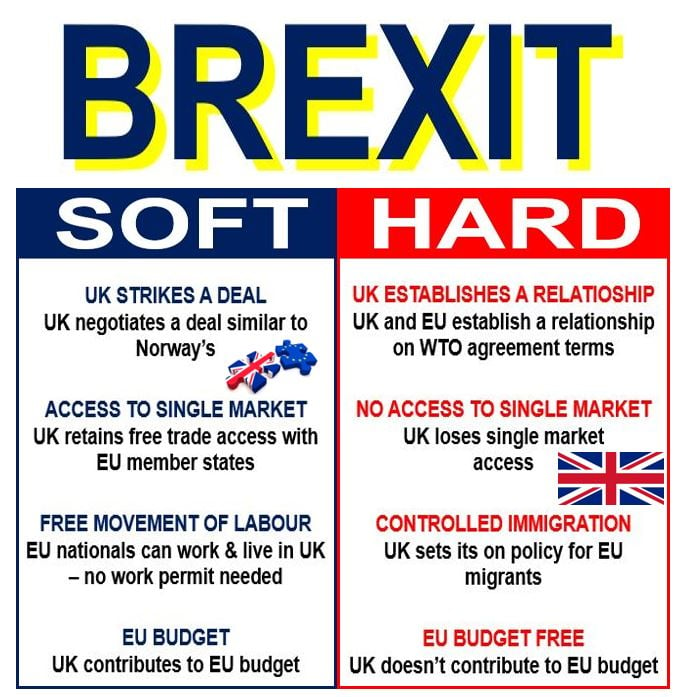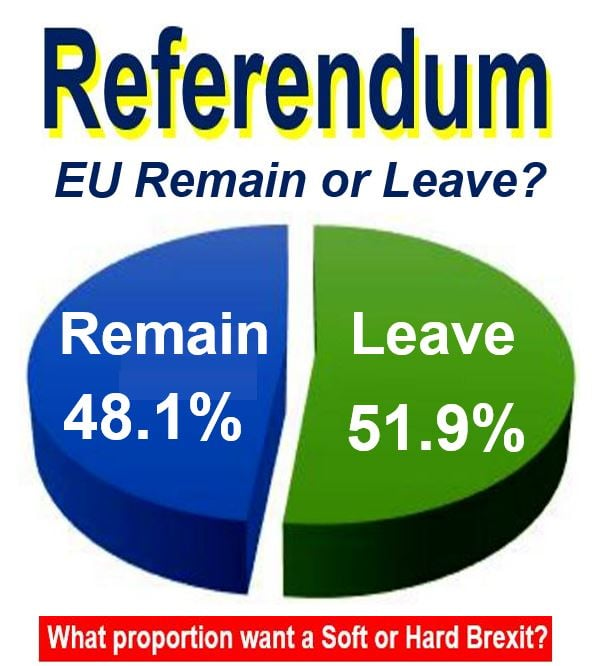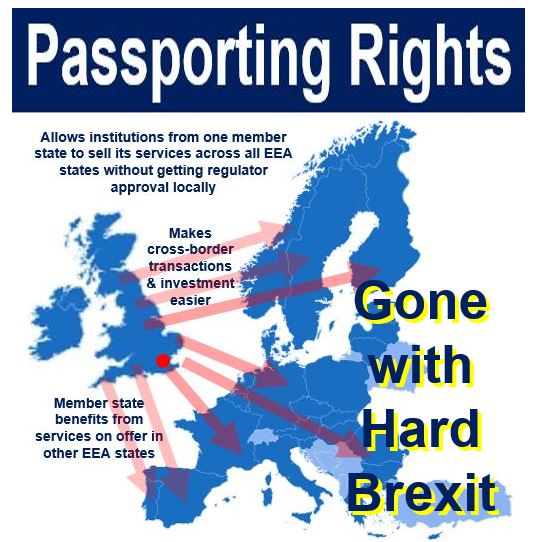George Osborne, the former Chancellor of the Exchequer, warned today that a hard Brexit would be extremely harmful for the UK economy. The damage would be severe and long-lasting, he added.
Brexit stands for Britain Exiting the European Union (EU). On 23rd June, the British electorate voted for Brexit. Prime Minister David Cameron resigned the next day, and within weeks Theresa May became Britain’s new Prime Minister. She fired Mr. Osborne and replaced him with Philip Hammond as Chancellor (Finance Minister).
A Soft Brexit means a separation from the EU, but the UK would maintain many of its current EU features and would have total access to the European Union market for trade.
A Hard Brexit means total, absolute separation, where no special access to the EU market. The aim is to get complete immigration control for the country at all costs.
 Mr. Osborne believes a soft Brexit is better for the UK’s economy than a hard Brexit.
Mr. Osborne believes a soft Brexit is better for the UK’s economy than a hard Brexit.
A hard Brexit would also mean the UK losing its passporting rights. Put simply, passporting is a bit like a kind of passport that financial institutions in the UK get in order to do business across the whole of the EU, plus Norway, Iceland and Liechtenstein, rather than having to approach each country’s authorities individually.
All EU member states have passporting rights.
Osborne says soft Brexit vital for UK
In an interview with Bloomberg, the first televised one since losing office, Mr. Osborne said that Mrs. May must try to maintain ‘the closest possible economic and financial relationship’ with the EU.
He fears that many anti-EU Conservative MPs (Members of Parliament) are hell-bent on achieving a hard Brexit at all costs, and that they will pressure Mrs. May into a strategy that would harm the country’s economy.
 We know that the majority of voters chose to leave the EU, but we have no idea how many wanted a hard or soft Brexit? Imagine you ask 100 people if they want to leave the building, but the question does not explain that exiting it might be from the ground floor or the 10th floor.
We know that the majority of voters chose to leave the EU, but we have no idea how many wanted a hard or soft Brexit? Imagine you ask 100 people if they want to leave the building, but the question does not explain that exiting it might be from the ground floor or the 10th floor.
Mr. Osborne said in Washington today:
“My broad view is we should be ending up with a, to use the jargon, softer Brexit. The economic consequences of a harder Brexit will be more severe.”
Osborne predicted economic meltdown
During the Referendum campaign, Mr. Osborne backed the Remain camp – for Britain to stay in the EU. He warned that there would be an economic meltdown if we voted to leave, and that the damaging effects would be felt immediately.
During the first couple of days after the vote, it did appear that he was right. The pound took a nosedive, the London stock market plummeted, David Cameron resigned, and there was a general sense of panic and gloom.
However, within a month things started to pick up dramatically. The stock market recovered and soon overtook its pre-Referendum levels, the economy continued expanding, exports grew, manufacturing reported growth, and virtually every single economic indicator came in with positive news.
In fact, things are going so well in the economy at the moment that Mrs. May signaled a scaling back of fiscal policy.
Mr. Osborne said:
“It is too early to say what the economic consequences of Brexit are going to be. It’s going to be the decisions that we take now which are also going to have a big impact on our long-term economic prospects.”
 With a Hard Brexit, the UK would lose passporting rights, i.e. the ability to operate across the whole continent without needing to apply to each nation’s authorities individually.
With a Hard Brexit, the UK would lose passporting rights, i.e. the ability to operate across the whole continent without needing to apply to each nation’s authorities individually.
No negotiations before German elections?
There is no way the EU will be able to properly negotiate a new trading relationship with Britain until after the German and French elections. France’s will take place in April and May 2017, while Germany’s must be called between 27th August and 22nd October 2017.
Mr. Osborne added:
“Whenever you trigger Article 50, the actual hard bit of the negotiation is going to have to wait for a new German government. Until the German government has come to a position it’s impossible to get a decision in Europe. That’s just realpolitik.”
When Article 50 is invoked, the process of separating from the EU begins. Most experts say that it will take about two years (some say much longer).
Mr. Osborne also criticized US Republican candidate Donald Trump’s campaign policies regarding international trade.
Mr. Osborne said:
“I don’t think the answers that Donald Trump put forward on closing America off from the world, erecting trade barriers, are going to help create jobs. I don’t think they are good for the world more generally.”
American banks with London operations
Large banks and financial institutions from the United States, Japan and other non-EU nations are worried about how their London operations – many of which are their European headquarters – will function if the UK ends up with a hard Brexit and no passporting rights.
Last week, Mrs. May met with the CEOs of America’s largest banks and was told that if access to the EU market were undermined, or if there was a long period of uncertainty, they would have to consider moving much of their UK operations across the channel.
There are about 80,000 extremely well-pain jobs in The City (London’s financial district) that could be moved to continental Europe, they warned.
Video – What is International Trade
International trade is all about trade between different countries, i.e., countries buying and selling things to each other.

